
Asyut: The Heart of Upper Egypt
Asyut is one of the oldest cities in Egypt, rich in history and culture. Nestled on the banks of the Nile River, it offers a unique blend of ancient and modern attractions. The city is known for its Coptic Christian heritage, with many churches and monasteries dotting the landscape. A visit to the ancient tombs at the nearby Asyut Necropolis will transport you back to the times of the Pharaonic dynasties. If you are interested in more recent history, the Asyut Barrage is an impressive example of early 20th-century engineering. The bustling local markets, or souks, offer a glimpse into the daily lives of the people and a chance to purchase handcrafted goods. Don't miss the opportunity to explore the natural beauty of the region. The lush landscapes along the Nile provide perfect settings for leisurely boat rides. The surrounding desert areas are ideal for those seeking adventure, with options for camel rides and desert safaris. Asyut is also home to several universities, infusing the city with a youthful and vibrant energy.
Local tips in Asyut
- Visit the Asyut Necropolis early in the morning to avoid the heat and crowds.
- Dress modestly when visiting religious sites to show respect for local customs.
- Bargain politely in the local souks to get the best prices on souvenirs.
- Try the local cuisine, especially dishes made with fresh Nile fish.
- Always have bottled water with you to stay hydrated, especially during the summer months.
Asyut: The Heart of Upper Egypt
Asyut is one of the oldest cities in Egypt, rich in history and culture. Nestled on the banks of the Nile River, it offers a unique blend of ancient and modern attractions. The city is known for its Coptic Christian heritage, with many churches and monasteries dotting the landscape. A visit to the ancient tombs at the nearby Asyut Necropolis will transport you back to the times of the Pharaonic dynasties. If you are interested in more recent history, the Asyut Barrage is an impressive example of early 20th-century engineering. The bustling local markets, or souks, offer a glimpse into the daily lives of the people and a chance to purchase handcrafted goods. Don't miss the opportunity to explore the natural beauty of the region. The lush landscapes along the Nile provide perfect settings for leisurely boat rides. The surrounding desert areas are ideal for those seeking adventure, with options for camel rides and desert safaris. Asyut is also home to several universities, infusing the city with a youthful and vibrant energy.
When is the best time to go to Asyut?
Iconic landmarks you can’t miss
Paradise Park in Assiut
Escape to Paradise Park in Assiut for Nile-side relaxation, family fun, and scenic views in a refreshing green space.
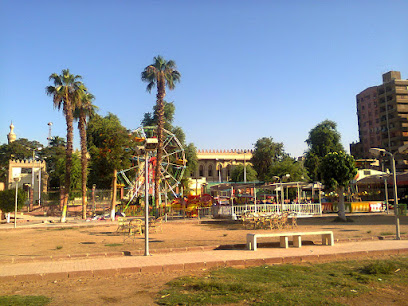
Monastery of the Blessed Virgin Mary (Muharraq)
Discover Al-Muharraq Monastery: a sacred Coptic site where the Holy Family found refuge, rich in history, ancient churches, and spiritual significance.
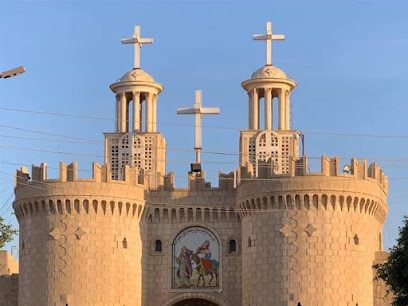
Kerry's Cafe
Experience a fusion of flavors at Kerry's Cafe in Asyut, offering Egyptian specialties, fast food favorites, and Japanese-inspired dishes in a cozy setting.
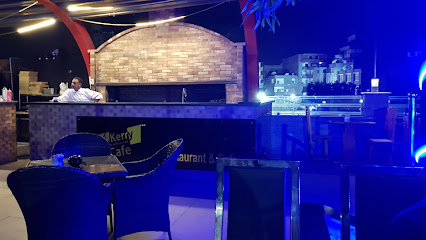
Assiut International Airport
Your gateway to exploring the wonders of Upper Egypt, connecting you to history and culture.
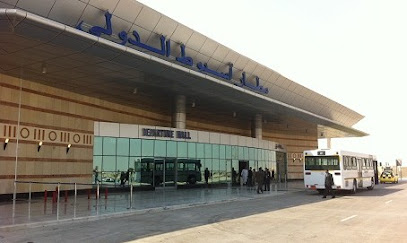
Assiutel Hotel
Experience comfortable accommodations and explore the historical city of Asyut from the conveniently located Assiutel Hotel.
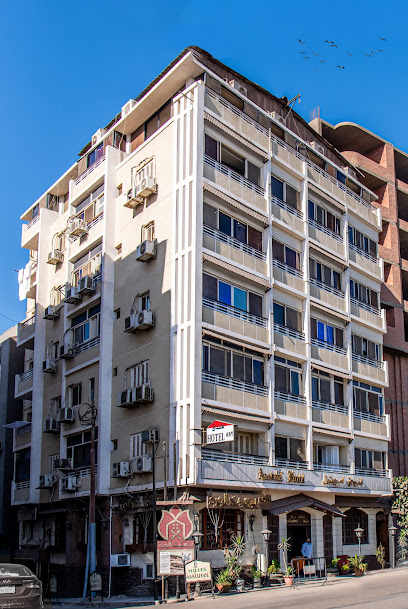
Assiut Cement Hotel
Experience comfort and convenience at Assiut Cement Hotel, your gateway to exploring the historical wonders and vibrant culture of Asyut, Egypt.
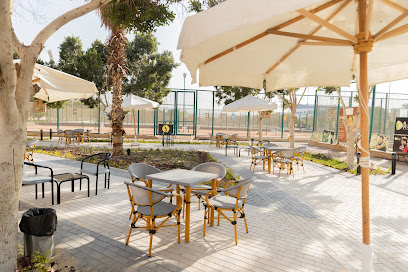
Alexan Pasha Palace, Asyut
Explore the Alexan Pasha Palace in Asyut, a symbol of a bygone era and a future national museum, showcasing the city's rich heritage.
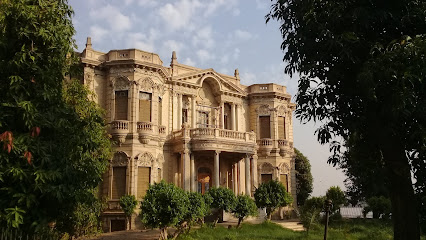
صينية اسيوط
Discover Asyut, a historical landmark in Egypt where ancient history meets vibrant local culture, offering a unique travel experience for every visitor.
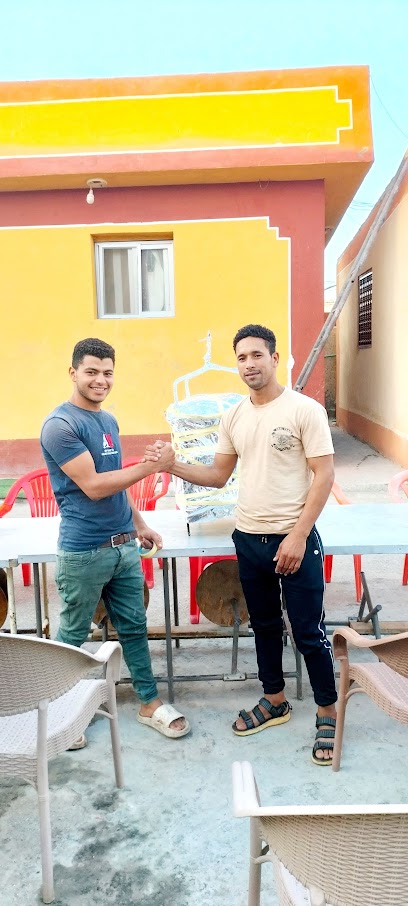
Kudyat AL Islam ️
Explore Kudyat AL Islam, a historical landmark in Assiut, and immerse yourself in the rich cultural heritage of Egypt, surrounded by serene beauty.

Statue of Gamal Abdel Nasser
Discover the Statue of Gamal Abdel Nasser in Asyut, a landmark honoring a pivotal leader in Egypt's history.

ميدان اسماء الله الحسنى
Discover the spiritual artistry of Asyut at Midan Asma' Allah Al-Husna, a square adorned with the divine names of Allah in a monumental display.
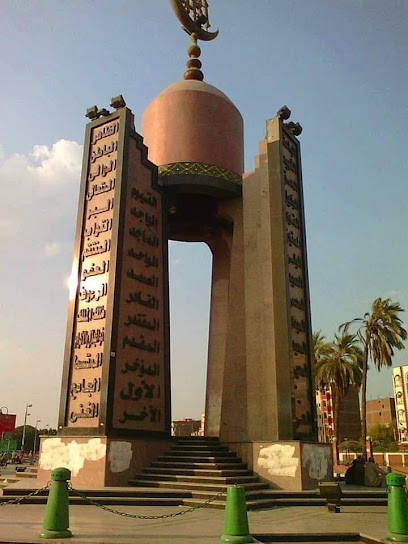
New Assiut City Sign
Capture the spirit of modern Assiut at the New City Sign, a vibrant landmark blending culture and progress in the heart of Egypt.

أسيوط
Explore Asyut, the hidden gem of Upper Egypt, where ancient wonders meet authentic local culture on the banks of the majestic Nile.

اسيوط
Explore Assiut: Where ancient Egyptian history meets vibrant modern culture on the banks of the majestic Nile.
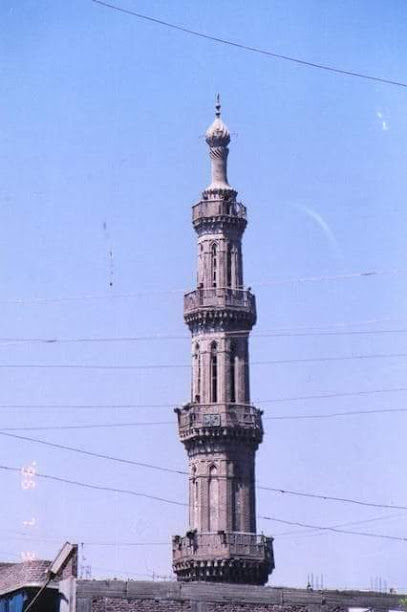
Unmissable attractions to see
Paradise Park in Assiut
Explore the lush landscapes and tranquil ambiance of Paradise Park in Assiut, your perfect escape along the Nile.
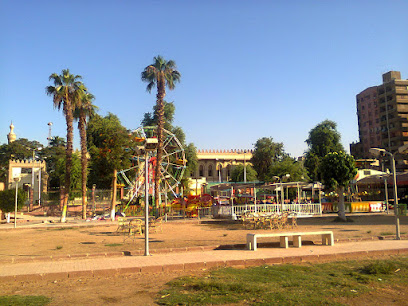
ميدان أسماء الله الحسنى
Experience the cultural heart of Assiut at Midan Asma' Allah Al-Husna, a serene square that embodies the essence of Upper Egypt.
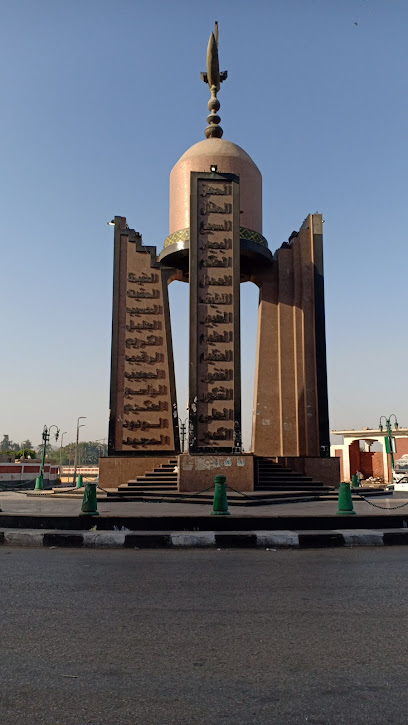
Alexan Pasha Palace, Asyut
Explore the grandeur of Egypt's history at Alexan Pasha Palace - a stunning museum in Asyut showcasing rich cultural heritage.
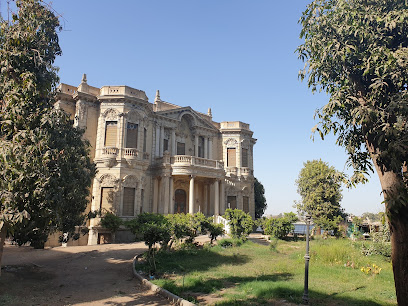
ممشي اهل مصر
Discover Mamshy Ahl Misr Park in El Fateh, a peaceful haven for nature lovers and a perfect spot for relaxation and outdoor activities.
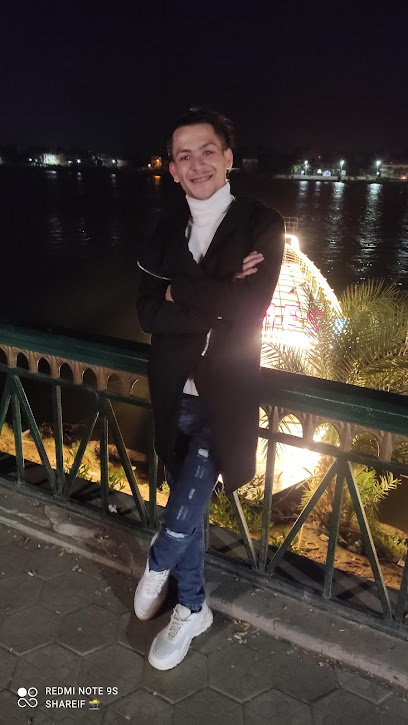
Abdellatif Yousseif General Park
Explore the tranquil beauty of Abdellatif Yousseif General Park, a green gem in Asyut, Egypt, perfect for relaxation, picnics, and family outings.
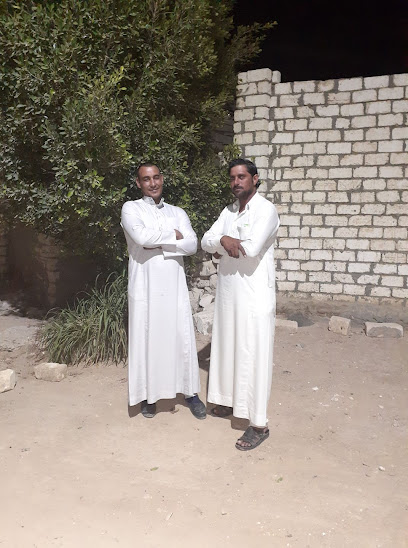
كورنيش ترعة الإبراهيمية
Experience the serene beauty of كورنيش ترعة الإبراهيمية, a tranquil park in Assiut Governorate, perfect for relaxation and scenic views.
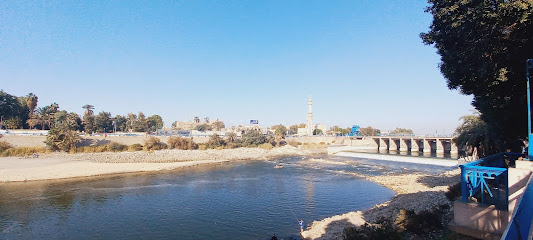
ممشى ترعة الابراهيميه
Experience tranquility at Memsha Tar'a Al-Ibrahimiya, a serene park in Assiut, Egypt, perfect for relaxation and nature walks.
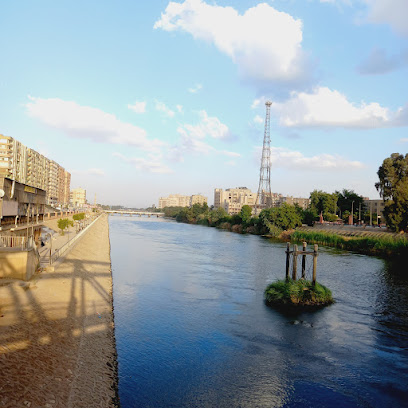
ميدان ام البطل
Explore the vibrant Midan Umm al-Batal in Assiut, a lively square that showcases local culture, cuisine, and the spirit of Egyptian life.
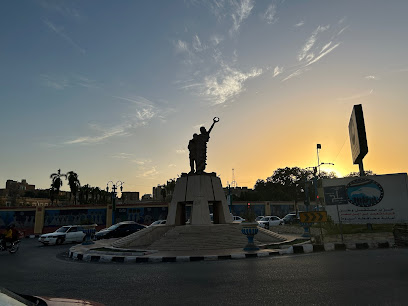
Location galaxy
Discover the tranquility of Location Galaxy, a beautiful garden in El Fateh, Assiut Governorate, perfect for relaxation and nature photography.

ميدان الجامعة
Discover the tranquility of Midan Al-Jami'a, a serene park in Assiut perfect for relaxation and cultural immersion amid lush greenery.
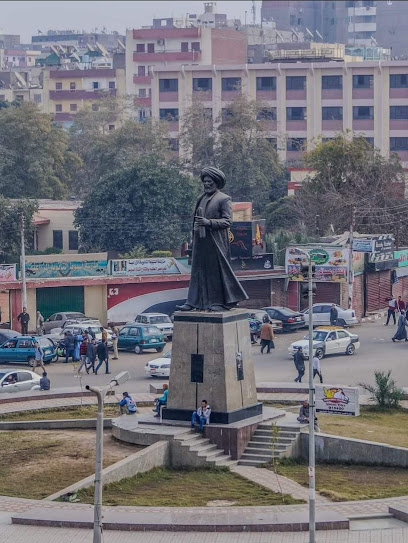
قرية عرب العطيات القبلية
Explore the rich culture and stunning landscapes of قريـة عرب العطيـات القبليـة, a hidden gem in Egypt's Assiut Governorate.

البلدة القديمة
Discover the ancient wonders of Al-Baldah Al-Qadeemah, a historical gem in Assiut Governorate, rich in culture and tradition.
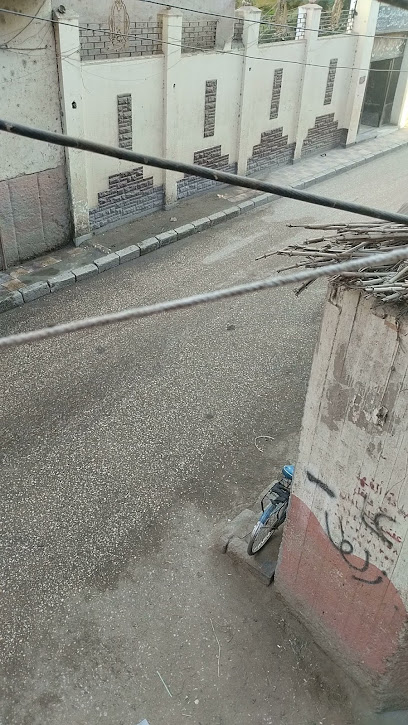
Balloon
Explore the enchanting Balloon attraction in El Fateh, a hidden gem of Assiut Governorate, offering stunning views and rich cultural experiences for tourists.

نيولايف
Explore the serene beauty of New Life Garden in El Fateh, a hidden gem offering tranquility and a lush escape into nature.
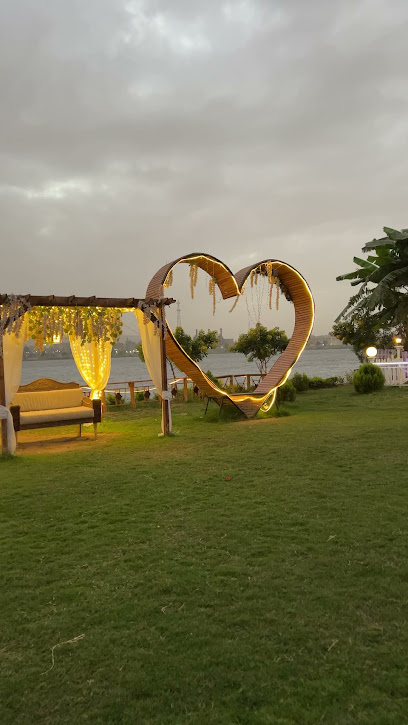
نفق السلام
Immerse yourself in the tranquil beauty of Nefq Al-Salam, an exceptional hiking area in Assiut Governorate, Egypt, perfect for nature lovers and adventurers.
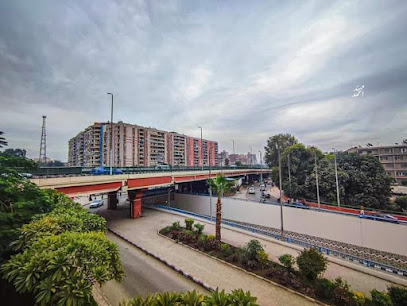
Essential places to dine
El Medan Restaurant
Discover authentic Egyptian flavors at El Medan Restaurant in Asyut—home of delicious Koshari and warm hospitality.
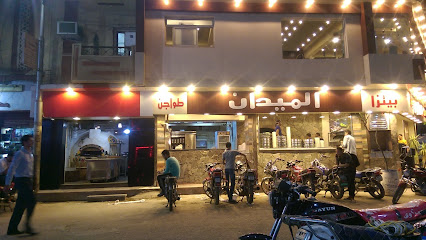
Kerry's Cafe
Discover Kerry's Cafe in Assiut - where fast food meets Japanese izakaya charm for an unforgettable dining experience.
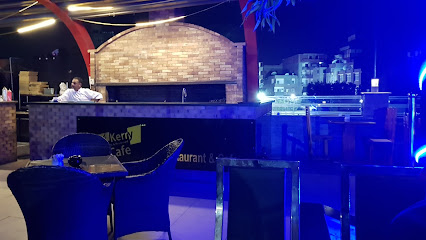
مطعم كايرو
Experience the best sandwiches in Asyut at مطعم كايرو – where flavor meets affordability in every bite.
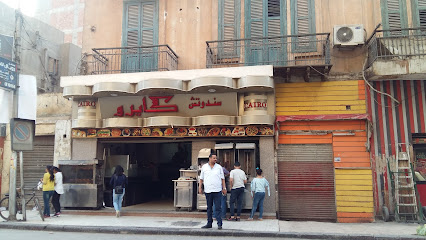
Farooq Al Samny Restaurant
Experience authentic Egyptian cuisine at Farooq Al Samny Restaurant in Asyut, where succulent meats meet vibrant local flavors.
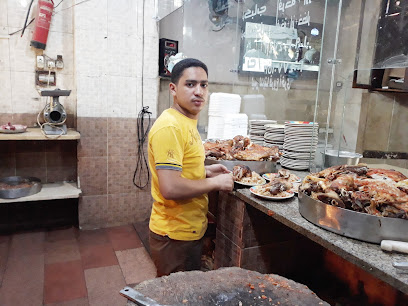
Restaurant talaat
Discover the rich flavors of Egyptian barbecue at Restaurant Talaat in Asyut - where every bite tells a story.
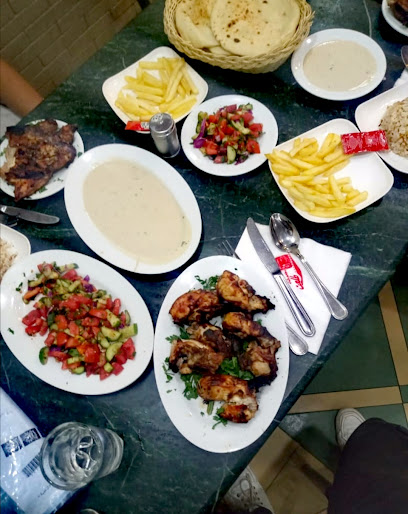
مطعم أسماك الحمد - فرع الكورنيش
Experience fresh seafood delights at مطعم أسماك الحمد - فرع الكورنيش in Assiut with stunning Nile views.
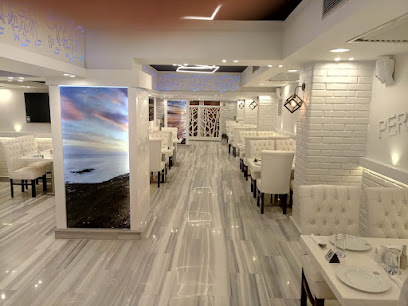
Soltana
Discover Soltana: A vibrant fast food spot in Assiut serving delicious local and international flavors perfect for every traveler.
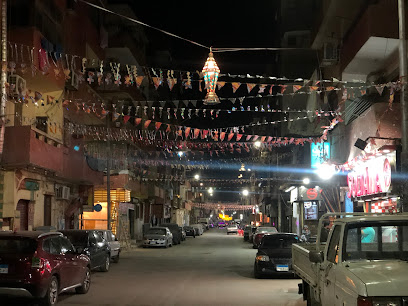
Karam Grill Restaurant
Experience authentic Egyptian barbecue at Karam Grill Restaurant in Assiut - where flavor meets tradition.
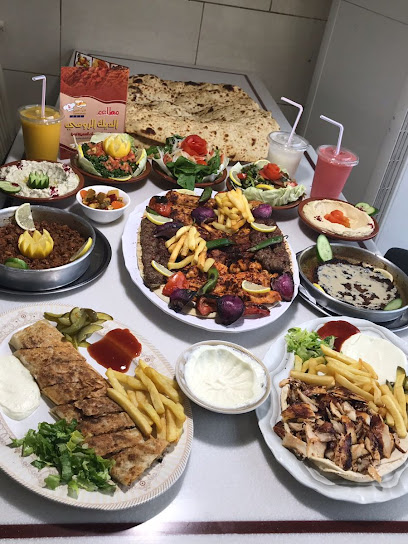
مطعم ومقهى أونيونز
Experience fast food with a local twist at مطعم ومقهى أونيونز in Assiut—delicious meals await every visitor.
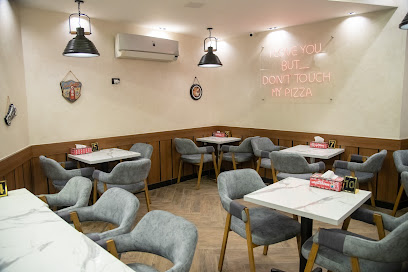
El Sheikh Restaurant
Experience the best of Egyptian barbecue at El Sheikh Restaurant in Assiut – where flavor meets tradition!
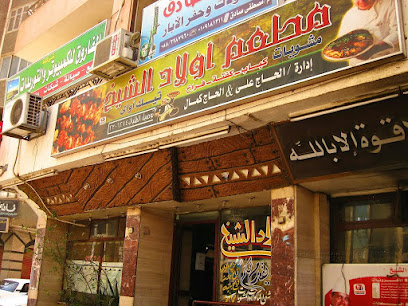
Sraya Elarab
Discover authentic Egyptian flavors at Sraya Elarab - a must-visit meat restaurant in Assiut known for its delicious cuisine and warm hospitality.
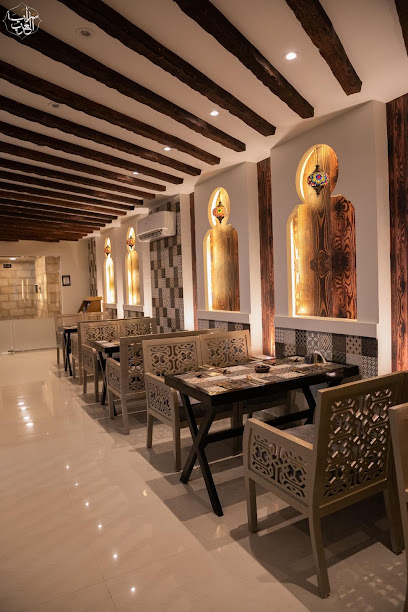
Salsa Restaurant
Discover delicious fast food at Salsa Restaurant in Assiut, where vibrant flavors meet casual dining in an inviting atmosphere.

Sultan Ayub
Experience authentic Turkish flavors at Sultan Ayub in Assiut—where every dish tells a story.
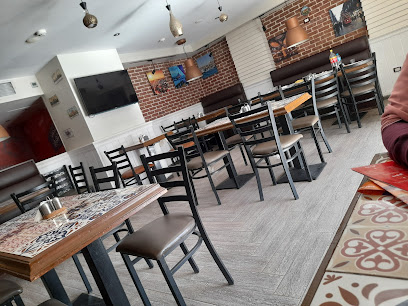
Spectra Restaurant &Cafe
Discover authentic Japanese izakaya cuisine at Spectra Restaurant & Cafe in Assiut's Nile Plaza Towers – where flavor meets tradition.
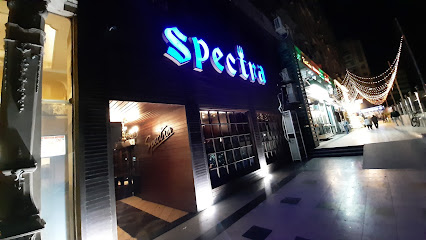
Alegria
Experience the rich flavors of Egyptian cuisine at Alegria in Asyut - where tradition meets modern dining.
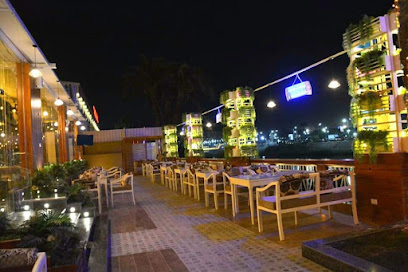
Markets, malls and hidden boutiques
التجمع الخامس
Explore unique vintage finds and embrace the charm of bygone fashion at التجمع الخامس in Asyut.

Tomato stores Assuit توميتو ستورز اسيوط
Explore the latest trends and unique fashion pieces at Tomato Stores Assuit, your go-to destination for stylish clothing in Assiut.

Alra3ee store
Explore Alra3ee Store in Assiut for an authentic shopping experience combining local culture with a smart shop's convenience.
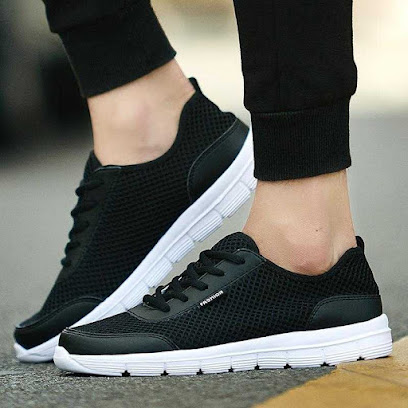
STAR POINT
Explore STAR POINT in Asyut for stylish, high-quality furniture that transforms your living spaces into beautiful homes.

حصل خير
Explore 'حصل خير' in Asyut for a unique gift shopping experience featuring fashion, tech, and local treasures.

محل محمد طه
Discover the elegance and charm of محل محمد طه, a premier lingerie store in Al Hamraa Ath Thaneyah, where quality meets style in intimate apparel.

asdw shop
Discover modern essentials at Asdw Shop, a unique smart shop in Assiut offering a variety of innovative products for the modern traveler.

vba shop
Explore the VBA Shop in Asyut for innovative gadgets and unique gifts that reflect the spirit of local culture.

Azmy shop for Accessories
Explore Azmy Shop for Accessories in Asyut for a unique shopping experience filled with local craftsmanship and vibrant styles.
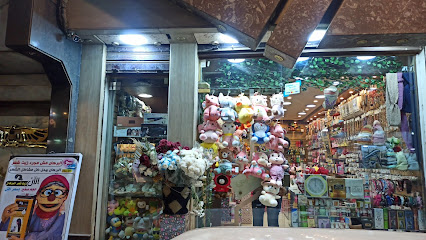
bkr shop
Explore BKR Shop in Asyut – where modern innovation meets traditional charm, offering the latest gadgets and smart solutions for tech lovers.

Versach asyut
Discover Versach Asyut, where local fashion meets contemporary style in a vibrant shopping experience.

Sea Treasure Handmade
Explore the charm of handmade crafts at Sea Treasure Handmade, the perfect gift shop in Assiut for unique souvenirs and local artistry.
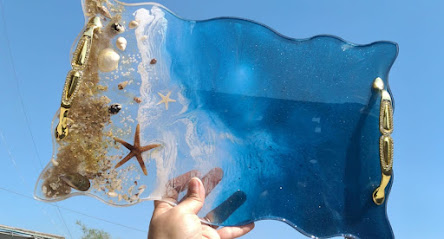
Shakalaka store
Explore Shakalaka Store in Asyut for unique Egyptian crafts, vibrant textiles, and a taste of local culture, perfect for souvenir shopping.

akr shop
Discover innovative gadgets and modern technology at Akr Shop in Asyut, where smart shopping meets exceptional customer service.

mhgoub store
Explore MHGoub Store in Asyut for authentic Egyptian crafts, unique souvenirs, and a taste of local culture.

Essential bars & hidden hideouts
مصنع سيد
Discover the authentic spirit of Asyut at مصنع سيد, where local flavors and lively atmosphere create unforgettable memories.
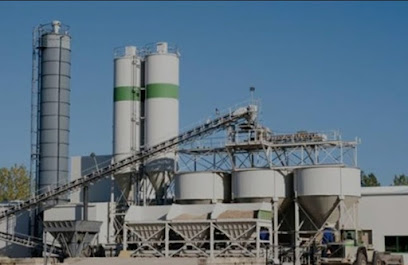
عصائر فن چيوس
Experience the vibrant flavors of Asyut at عصائر فن چيوس, a charming bar offering refreshing juices and a lively atmosphere.
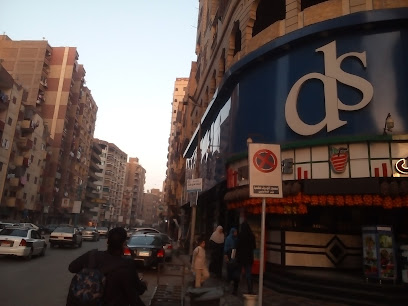
الله ينور
Discover the vibrant nightlife at الله ينور in Asyut, where local culture meets a lively bar atmosphere and unforgettable experiences await.
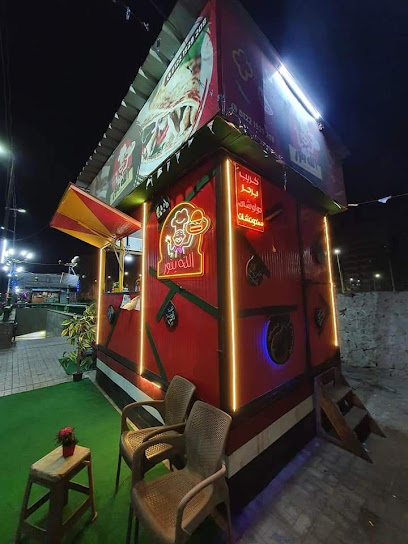
مطاحن بن الميزان اسيوط
Discover the vibrant atmosphere of مطاحن بن الميزان اسيوط, a cocktail bar in Assiut offering unique drinks and a welcoming ambiance for all visitors.

ل
Discover the vibrant nightlife of Al Hamraa Ath Thaneyah in Asyut, where local culture meets lively social gatherings in a welcoming bar atmosphere.

Pol
Discover Pol, a serene bar in the heart of the Asyut Desert, where stunning landscapes meet Egyptian hospitality.

ملعب الكاثوليكي الوحده الوطنيه
Experience the lively atmosphere of ملعب الكاثوليكي الوحده الوطنيه, Asyut's premier dart bar, where fun and friendly competition meet.

يي
Experience the vibrant nightlife of Al Hamraa Ath Thaneyah, where traditional flavors meet modern bar culture in Asyut, Egypt.

El kahf
Discover the vibrant atmosphere of El Kahf, a bar in Assiut that blends local culture with a lively nightlife experience.

عرب الجهية
Experience the lively atmosphere of عرب الجهية in Asyut, where local culture meets modern nightlife for an unforgettable evening.

مكان لبيع المشوربات
Discover a delightful bar in Asyut offering an array of refreshing beverages perfect for unwinding after a day of exploration.

عصاير
Explore the refreshing world of ciders at عصاير, a vibrant bar in Assiut offering unique local and international flavors.

عصير ميرلاند
Uncover the lively nightlife at عصير ميرلاند, a cocktail bar in Assiut offering unique drinks and a vibrant atmosphere for tourists.

hhh
Discover the vibrant nightlife at this charming bar in Al Hamraa Ath Thaneyah, Asyut, where local culture meets a welcoming atmosphere.

Local Phrases
-
- HelloMarhaba
[mar-ha-ba] - GoodbyeMa'a as-salama
[ma-a as-sa-la-ma] - YesNa'am
[na-am] - NoLa
[la] - Please/You're welcomeMin fadlak
[min fad-lak] - Thank youShukran
[shuk-ran] - Excuse me/SorryAasif
[aa-sif] - How are you?Ezzayyak?
[ez-za-yak] - Fine. And you?Kwayyes. Winti?
[kway-yes. win-ti] - Do you speak English?Betetkalam Englezi?
[be-te-ka-lam en-glez-i] - I don't understandAna mish fahem
[a-na mish fa-hem]
- HelloMarhaba
-
- I'd like to see the menu, pleaseAna 'ayez ashoof el menyu, min fadlak
[a-na a-yez a-shoof el men-yu, min fad-lak] - I don't eat meatAna mish 'akol lahama
[a-na mish a-kol la-ha-ma] - Cheers!Fee sahetak!
[fee sa-he-tak] - I would like to pay, pleaseAna 'ayez a-od fadlak
[a-na a-yez a-od fad-lak]
- I'd like to see the menu, pleaseAna 'ayez ashoof el menyu, min fadlak
-
- Help!Saa'id!
[saa-id] - Go away!Rooh weadi!
[rooh we-a-di] - Call the Police!Etlob el shurta!
[et-lob el shur-ta] - Call a doctor!Etlob tabib!
[et-lob ta-bib] - I'm lostAna daa'iy
[a-na daa-iyy] - I'm illAna mareed
[a-na ma-reed]
- Help!Saa'id!
-
- I'd like to buy...Ana 'ayez ashtry...
[a-na a-yez ash-try] - I'm just lookingAna bass bafsar
[a-na bas ba-fsar] - How much is it?Kam haga de?
[kam ha-ga de] - That's too expensiveDa ghalii awy
[da gha-lii awy] - Can you lower the price?Tegdar taksir el se'a?
[teg-dar tak-sir el se-a]
- I'd like to buy...Ana 'ayez ashtry...
-
- What time is it?Sa'a kam?
[sa-a kam] - It's one o'clockSa'ah wahda
[sa-a wah-da] - Half past (10)Nos sa'a (ashra)
[nos sa-a (ash-ra)] - MorningSabaah
[sa-baah] - AfternoonDuhur
[du-hur] - EveningMasaa
[ma-saa] - YesterdayAmse
[am-se] - TodayEl yawm
[el yom] - TomorrowGhadan
[gha-dan] - 1Waahed
[wa-a-hed] - 2Itnen
[it-nen] - 3Talata
[ta-la-ta] - 4Arbaa
[ar-baa] - 5Khamsa
[kham-sa] - 6Sitta
[sit-ta] - 7Saba'a
[sa-ba-a] - 8Thamanya
[tha-ma-nya] - 9Tessa
[tes-sa] - 10Ashara
[ash-a-ra]
- What time is it?Sa'a kam?
-
- Where's a/the...?Fein el...
[fe-in el] - What's the address?Eh el address?
[eh el ad-dress] - Can you show me (on the map)?Tegdar turiini (ala el khariita)?
[teg-dar tu-ree-ni (ala el kha-ree-ta)] - When's the next (bus)?Ezay el etnein?
[ez-zay el et-nein] - A ticket (to ....)Taqti (ila ....)
[taq-ti (ila ....)]
- Where's a/the...?Fein el...
History of Asyut
-
Asyut, known in ancient times as Zawty, was a significant city in Upper Egypt. It was the capital of the 13th Nome of Upper Egypt and was dedicated to the worship of the god Wepwawet, a war deity often depicted as a wolf. The city was thus nicknamed 'Lycopolis' by the Greeks, meaning 'City of Wolves'.
-
During the Middle Kingdom (c. 2055–1650 BCE), Asyut flourished as a key administrative center. The city was a strategic point on the Nile, linking the south and the north of Egypt. Rich tombs from this period, belonging to local governors and officials, have been discovered, providing insights into the wealth and importance of Asyut at the time.
-
In the early Christian era, Asyut was a significant center for Christianity in Egypt. The city is known for the Asyut Martyrs, a group of Christians who were persecuted and martyred during the Diocletianic Persecution in the early 4th century CE. Their legacy is preserved in the Monastery of the Virgin Mary, also known as the Monastery of Durunka, which is a significant pilgrimage site.
-
Following the Arab conquest of Egypt in the 7th century CE, Asyut became an important Islamic cultural center. The city saw the construction of numerous mosques and madrasas. During the Ottoman period, Asyut continued to thrive as a major trade hub, especially known for its grain markets and textile industry.
-
In the 20th century, Asyut emerged as a critical educational and cultural center in Egypt. The establishment of Asyut University in 1957 marked a significant development, transforming the city into a hub of higher education and research. The university attracts students from across Egypt and the Middle East, contributing to the city’s vibrant cultural atmosphere.
-
Asyut played a notable role during the Egyptian Revolution of 2011. The city saw numerous protests and demonstrations as part of the widespread movement against the regime of Hosni Mubarak. The participation of Asyut's residents in the revolution highlighted their desire for political change and social justice, echoing the broader sentiments across the country.
Asyut Essentials
-
Asyut is located in Upper Egypt, approximately 375 kilometers south of Cairo. You can reach Asyut by air through Asyut Airport, which has flights connecting to Cairo and other major Egyptian cities. Alternatively, you can take a train from Cairo to Asyut; the journey typically takes around 5 to 6 hours. Buses and private cars are also available for road travel, offering a scenic route along the Nile River.
-
Within Asyut, you can use taxis, microbuses, and tuk-tuks for local transportation. Taxis are the most convenient but make sure to negotiate the fare beforehand or ensure the meter is running. Microbuses are a cheaper option but can be crowded. For a more local experience, tuk-tuks are available for short distances. Renting a car is also an option, but driving in Egypt can be challenging due to traffic rules and road conditions.
-
The official currency in Egypt is the Egyptian Pound (EGP). Credit cards are accepted in most hotels, restaurants, and larger shops, but it is advisable to carry cash for small purchases and in local markets. ATMs are widely available in Asyut, but it is wise to withdraw sufficient cash before heading to rural areas.
-
Asyut is generally safe for tourists, but it is essential to take standard precautions. Avoid walking alone at night in unfamiliar areas, and be cautious of pickpockets in crowded places. Some neighborhoods may have higher crime rates, so it's best to stick to well-known tourist areas and always remain vigilant.
-
In case of emergency, dial 122 for police, 123 for an ambulance, and 180 for the fire department. The local police station and medical facilities are available in Asyut. It is highly recommended to have travel insurance that covers medical emergencies. For minor health issues, pharmacies are available throughout the city where you can purchase over-the-counter medications.
-
Fashion: Do dress modestly, especially when visiting religious sites. Avoid wearing revealing clothing. Religion: Do respect local customs and traditions. When visiting mosques, ensure you are dressed appropriately and consider removing your shoes. Public Transport: Do be respectful and give up your seat to elderly passengers. Don't eat or drink on public transport. Greetings: Do greet people with a handshake. A slight bow of the head is also a sign of respect. Eating & Drinking: Do try local delicacies and accept food offerings graciously. Don't refuse hospitality, as it is considered impolite.
-
To experience Asyut like a local, visit the local markets where you can buy fresh produce and traditional Egyptian goods. Engage with locals, as they are often friendly and willing to share stories about the city's history and culture. Don't miss visiting the Monastery of the Virgin Mary at Durunka and the ancient city of Meir, known for its rock-cut tombs. For a unique experience, take a boat trip on the Nile to enjoy the scenic beauty of the river and its surroundings.
Trending Landmark in Asyut
Nearby Cities to Asyut
-
Things To Do in Sohag
-
Things To Do in Minya
-
Things To Do in Beni Suef
-
Things To Do in Luxor
-
Things To Do in El Gouna
-
Things To Do in Hurghada
-
Things To Do in Cairo
-
Things To Do in Sharm El Sheikh
-
Things To Do in Suez
-
Things To Do in Dahab
-
Things To Do in Zagazig
-
Things To Do in Aswan
-
Things To Do in Ismailia
-
Things To Do in Tanta
-
Things To Do in Marsa Alam





